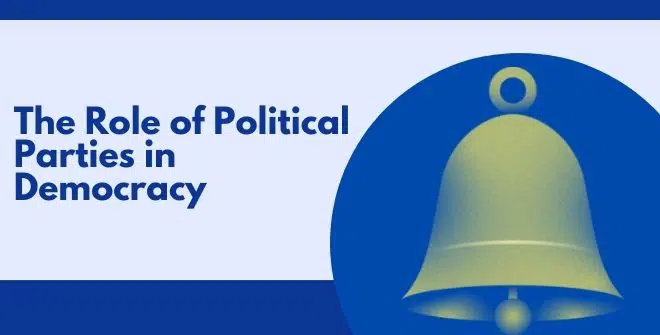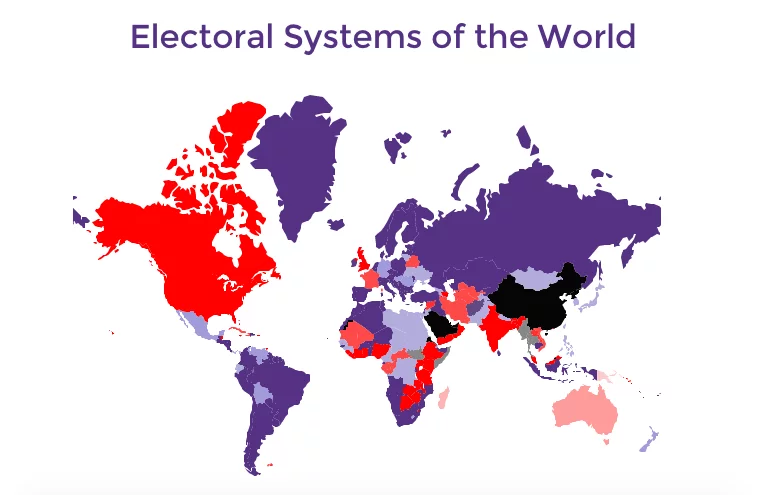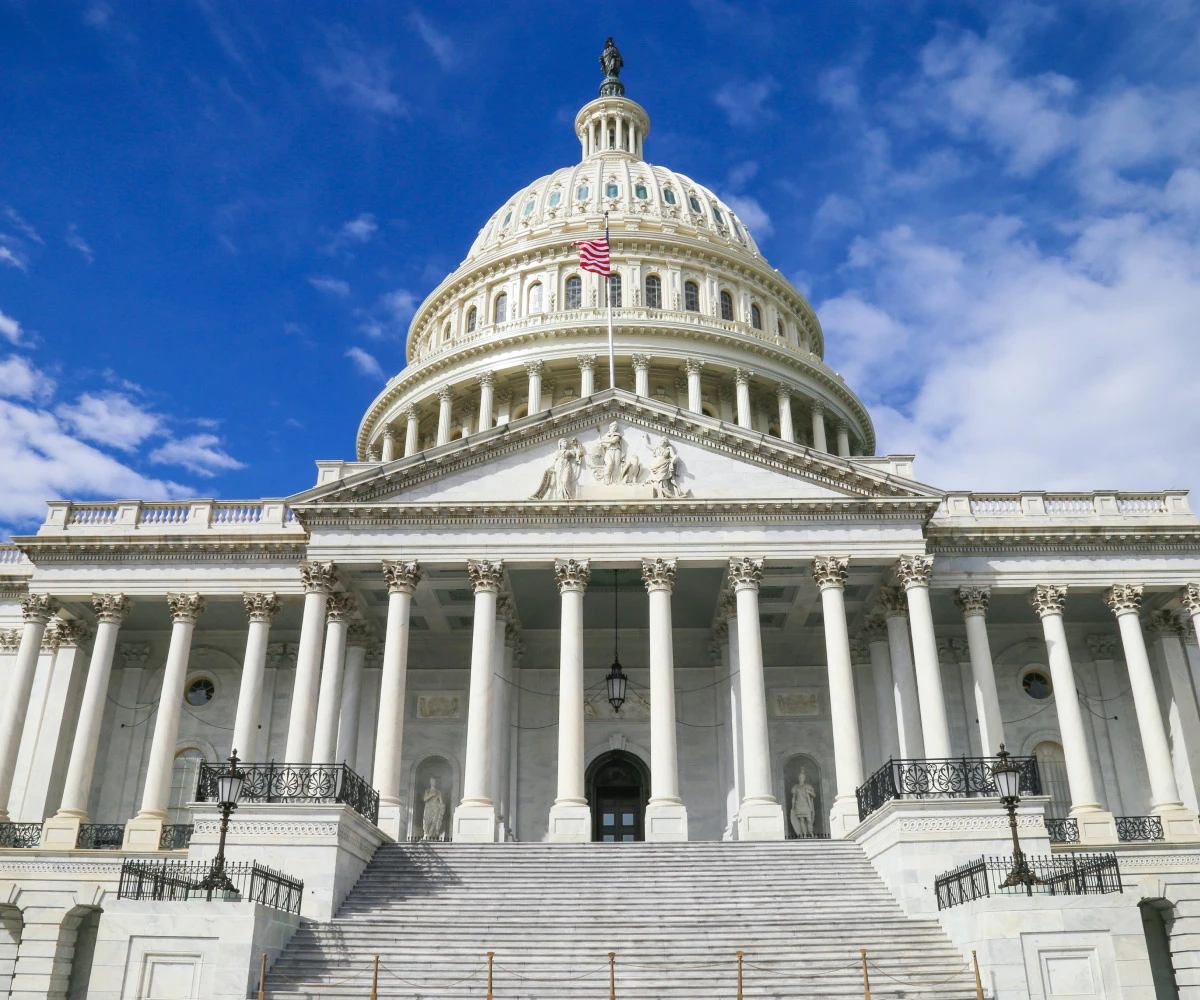Political Parties in Democracy: Understanding Their Vital Role
Discover the pivotal role political parties play in a democratic system. Explore their impact on governance and elections in this insightful analysis of political parties in democracy

The Crucial Role of Political Parties in a Democratic System
In a democratic system, political parties are the cornerstone of the entire political process. They play a vital role in shaping the way a government functions and representing the interests and values of the people. This article explores the multifaceted role of political parties in a democratic society, highlighting their significance in promoting healthy competition, ensuring representation, fostering accountability, and ultimately, strengthening the foundations of democracy.
Facilitating Representation
One of the primary roles of political parties in a democratic system is to facilitate representation. They serve as the bridge between citizens and the government, offering a structured platform for individuals to collectively express their political preferences. Through political parties, citizens can align with like-minded individuals and channel their concerns, values, and ideologies into the political arena. This representation is essential because it ensures that diverse voices are heard and considered in the policymaking process.
Promoting Healthy Competition
Political parties inject a sense of competition into the democratic process. In a multi-party system, different parties vie for power by presenting distinct policies and visions for the future. This competition fosters innovation and encourages parties to come up with better solutions to societal problems. Voters have the opportunity to choose among various options, which ensures that politicians are accountable for their actions and policies.
Formulating and Articulating Policy
Political parties play a central role in the formulation and articulation of policy. They act as think tanks, developing comprehensive plans and agendas for governing. These policies reflect the party's ideology and vision for the country. During elections, parties present their policy proposals to the electorate, allowing voters to make informed decisions about which party aligns best with their values and priorities.
Holding Elected Officials Accountable
In a democratic system, the role of political parties extends beyond elections. They also serve as watchdogs, holding elected officials accountable for their actions. Parties in the opposition scrutinize the policies and decisions of the ruling party, offering alternative perspectives and checks on potential abuses of power. This oversight function is critical for maintaining the balance of power and ensuring that governments act in the best interests of the people.
Nurturing Civic Engagement
Political parties are essential in nurturing civic engagement and political participation. They provide citizens with a means to become involved in the political process, whether by joining a party, attending meetings, or volunteering for campaigns. This engagement strengthens the democratic fabric of society, as active and informed citizens are more likely to contribute to the betterment of their communities and hold their leaders accountable.
Building Consensus and Governing Effectively
In a democracy, political parties are instrumental in building consensus and fostering cooperation among elected representatives. No single party typically holds an absolute majority, necessitating coalition-building and compromise to pass legislation and govern effectively. Through negotiations and dialogue, parties work together to address complex issues and find common ground, ensuring the smooth functioning of government.
Reflecting and Shaping Public Opinion
Political parties both reflect and shape public opinion. They serve as a mirror, capturing the evolving values, beliefs, and concerns of the electorate. Simultaneously, they have the power to influence public opinion through their communication strategies, campaign messages, and policy proposals. This dynamic relationship between parties and public opinion is a central component of democratic politics.
Challenges Faced by Political Parties
While political parties are indispensable to the democratic process, they are not without their challenges. These challenges can pose risks to the stability and effectiveness of a democratic system:
Polarization: In some democracies, political parties have become increasingly polarized, leading to gridlock and a breakdown of cooperation. Extreme partisanship can hinder the ability to find common ground and reach compromises, which are essential for effective governance.
Erosion of Trust: Political parties can suffer from declining public trust, especially when they are perceived as corrupt, unresponsive, or disconnected from the needs of ordinary citizens. Rebuilding trust in political institutions is a pressing challenge in many democracies.
Money in Politics: The influence of money in politics can undermine the integrity of political parties and their ability to represent the interests of the people. Campaign financing and lobbying can lead to unequal access and influence within the political system.
Populism: The rise of populist movements and leaders can challenge traditional party systems. Populist leaders often bypass established parties, relying on charismatic appeals to gain power. While populism can be a legitimate expression of discontent, it can also weaken the checks and balances of a democratic system.
Lack of Diversity: Some political parties may lack diversity in terms of gender, ethnicity, or socioeconomic backgrounds among their leadership and candidates. This underrepresentation can hinder the ability to address the diverse needs of the population.
Short-Termism: In the pursuit of electoral success, parties may prioritize short-term gains over long-term policy solutions. This can result in policies that are geared towards winning elections rather than addressing complex, enduring issues.
Reforms and Solutions
To address these challenges and strengthen the role of political parties in democratic systems, several reforms and solutions can be considered:
Campaign Finance Reform: Implementing transparent and equitable campaign financing regulations can reduce the influence of money in politics and level the playing field for political parties.
Electoral System Reforms: Exploring alternative electoral systems, such as proportional representation, can encourage greater diversity in political representation and reduce the polarization seen in some first-past-the-post systems.
Civic Education: Promoting civic education and political literacy can empower citizens to make informed choices and engage more actively in the democratic process.
Internal Party Reforms: Political parties themselves can undertake internal reforms to enhance transparency, inclusivity, and accountability. These reforms might include more open candidate selection processes and improved mechanisms for member input.
Coalition-Building: Encouraging cooperation and coalition-building among political parties can foster consensus and effective governance, even in multi-party systems.
Combatting Disinformation: Political parties can play a role in combatting disinformation and promoting fact-based political discourse by adhering to ethical campaign practices and promoting media literacy.
Political parties are the linchpin of democratic systems, serving as the conduits through which citizens express their political will and holding elected officials accountable. While they face various challenges, these issues can be addressed through thoughtful reforms and a commitment to the principles of democracy. A healthy democracy depends on the active and responsible engagement of political parties, which must continue to adapt and evolve to meet the evolving needs of their societies. Ultimately, political parties remain essential to the preservation and advancement of democracy around the world.
?
?
What's Your Reaction?












